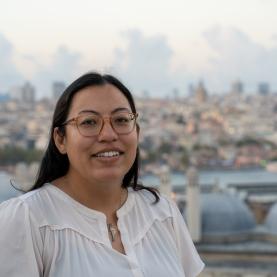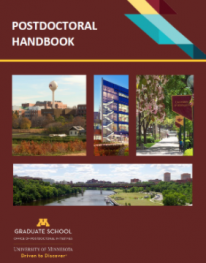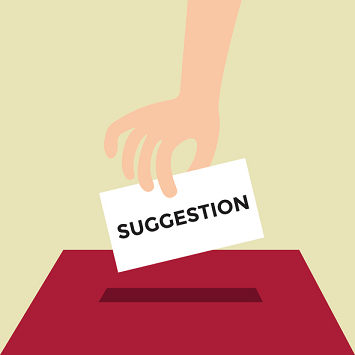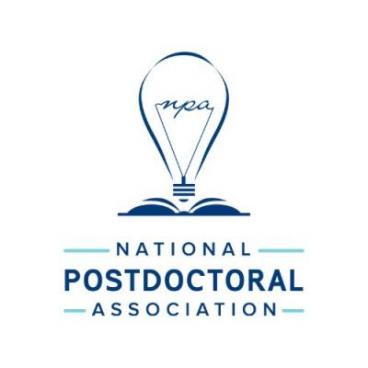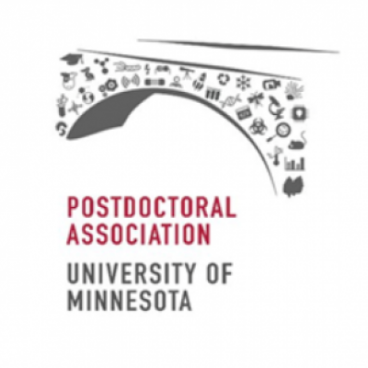Welcome
Office of Graduate Student and Postdoctoral Initiatives Mission
The mission of the Office of Graduate Student and Postdoctoral Initiatives is to continually work with faculty to create the most positive and supportive climate and culture. Our specific goals are to:
- Build community and give greater visibility to postdoctoral scholars;
- Encourage excellence in postdoctoral mentoring, advising, and professional development;
- Prepare the next generation of scholars to be leaders and change agents in their respective fields.
Postdoc Handbook
The Postdoctoral Handbook offers new and returning postdocs a guide to resources and information from across the University and broader community.
Download PDF
Virtual Suggestion Box
Do you have a question, concern or feedback on the work of the Office of Graduate Student and Postdoctoral Initiatives? Do you have ideas for improving the postdoc experience?
Leave us a message using this Google Form!
Community Building
Postdoctoral Appreciation Week
Each September, the Office of Postdoctoral Initiatives hosts a reception event for postdocs during National Postdoctoral Appreciation Week (a National Postdoctoral Association-sponsored initiative). Due to the COVID-19 pandemic, this year’s reception was held virtually. See a recording of the 2021 NPAW Postdoc Reception.
The Post
Each month, the Office of Postdoctoral Initiatives publishes an online newsletter with information about upcoming events, professional development opportunities, and ways to get involved with the broader postdoc community. To submit information to the Post, e.g, announcements regarding professional development and funding opportunities, please submit to opi@grad.umn.edu.
Policy Initiatives and Advocacy to Improve Climate Surrounding Postdoctoral Education
The Office of Postdoctoral Issues works on policy initiatives and advocacy in support of postdocs, e.g, equity health benefits, time for professional development outside the “lab.”
Monitoring and Evaluation of Climate Surrounding Postdoctoral Education
The Office of Postdoctoral Initiatives conducts a survey (postdocSERU) every other year to assess the experiences of postdocs and Monitor the climate surrounding postdoctoral training.
Building Community through Collaboration
PDA
OPI collaborates with the UMN Postdoctoral Association (PDA), a postdoc-led organization that exists to improve the quality of the postdoctoral experience and to facilitate the long-term success of University postdocs. Members meet regularly to discuss issues relevant to the postdoc community and to organize community-building events. See PDA Facebook Page.
The Graduate School Diversity Office
OPI collaborates with the Graduate School Diversity Office, which leads and coordinates the University’s initiatives in the recruitment, funding, retention, and graduation of a diverse graduate student body and postdoc community. Additionally, this office works closely with other organizations connected to diversity, underrepresented populations, and multiculturalism.
Leadership & Development
Travel grants for Summer Trainings
The Office of Postdoctoral Initiatives offers three travel grants for postdocs to enhance their professional development and leadership skills, e.g., advanced training in new methods. Applications are available in the fall.
Professional Development
Write Now
Our office hosts a series of writing events throughout the year that provide postdocs and PhD students with the opportunity to write together in a comfortable, quiet space with light refreshments. Participants set writing goals, and at the event’s conclusion, we debrief in a supportive, affirming environment.
Professional Development Workshops
The OPI co-hosts and promotes workshops and trainings sponsored by the Graduate School and other campus groups. View upcoming workshops.
New Faculty Program
The Office of Postdoctoral Initiatives promotes workshops and trainings listed in the The New Faculty Program (NFP) at the University.
Advising & Mentoring
Excellence in Advising Award
Advising is a critical area of focus for the University and a key ingredient for a successful postdoc experience. Each year, the Office of Postdoctoral Initiatives recognizes two outstanding faculty members who demonstrate excellence in their advising of Postdoctoral Fellows and Associates.
2021-2022 Awardees:
Establishing a Successful Advisor-Advisee Relationship
We advocate and encourage best practices in advising among faculty and postdocs.
Individual Development Plan
We also encourage all postdocs to develop an Individual Development Plan (IDP). A well-crafted IDP serves as both a planning tool to identify research and career goals, and a structure for communicating them to mentors, advisors, and future employers.
For an example of a postdoctoral IDP, click here.
Professional Development Resources
Provides online professional development training for graduate students, postdocs, faculty and PhDs to support career transitions. This research-driven platform is informed by nearly a decade of experience supporting PhDs to launch new careers with their skills and training.
National Center for Faculty Development and Diversity (NCFDD)
A nationally recognized center dedicated to helping faculty, post-docs, and graduate students make successful transitions throughout their academic careers. Topics covered by NCFDD include strategies for increasing research productivity, developing a daily writing plan, managing time more effectively, and many others that fit the life course of academic professionals.
The New Faculty Program (NFP) offers multiple opportunities for tenure-track, contract faculty, and postdocs to jump start their careers at the U. The program helps faculty build their capacities in research, teaching, community engagement, career advancement, and leadership. Postdocs who complete 8 credits from offered workshops will receive a letter of recognition from Vice Provost for Faculty and Academic Affairs Rebecca Ropers.
Funding Opportunities & Resources
Ongoing UMN Postdoc Opportunities
- Cancer Related Health Disparities Training Program - NCI - Michele Allen
- Technology Commercialization Fellowship - Leza Besemann
- Infectious Disease Training in Clinical Investigation - NIAID - David Boulware
- Integrative Training Program in Neuroimaging - NIBIB - Wei Chen
- Developmental Psychopathology - NIMH - Dante Cicchetti
- Musculoskeletal Training Grant - NIAMS - Denis Clohisy
- Regional Postdoctoral Training Grant in Eating Disorders Research - NIMH - Scott Crow
- Training the Next Generation of Chemical Biologists - NIGMS - Mark Distefano
- Training Program in Cardiac Innovation - NHLBI - Samuel Dudley
- Cardiovascular Disease Epidemiology & Prevention - NHLBI - Ryan Demmer & Jim Pankow
- CTSI T32 Program - NIH - Jayne Fulkerson
- Immunology Training Program - NIAID - Kristin Hogquist
- Training in Lung Science - NHLBI - David Ingbar
- Minnesota Obesity Prevention Training (MnOPT) - NIDDK - Catherine Kotz
- Comorbidity: Substance Use Disorders and Other Psychiatric Conditions - NIDA - Matt Kushner
- Cancer Biology Training Grant - NCI - Carol Lange
- Molecular, Genetic, and Cellular Targets of Cancer Training Program — NCI — Carol Lange
- Minnesota Training Program in Virology - NIAID - Louis Mansky
- Comparative Medicine and Pathology Training - OD - Molly McCue
- Training Program in Translational Vision Sciences - NEI - Linda McLoon
- Neuroscience Training in Drug Abuse Research - NIDA - Paul Mermelstein
- Training in PharmacoNeuroImmune Substance Abuse Research - NIDA - Thomas Molitor
- Pre-Faculty Research Training in Pediatric Endocrinology - NIDDK - Antoinette Moran
- Training in Biostatistics for Heart; Lung and Blood Disease Research - NHLBI - Jim Neaton
- Research on Eating and Activity for Community Health (REACH) — NHLBI — Dianne Neumark-Sztainer
- Biostatistics in Genetics and Genomics Training Program - NIGMS - Wei Pan
- Stem Cell Biology Training Program - NIGMS - Rita Perlingeiro
- Using Computation to Achieve Breakthroughs in Neuroscience - NIMH - David Redish
- Training for Future Biotechnology Development - NIGMS - Claudia Schmidt-Dannert
- Training Grant in Diabetes; Endocrinology and Metabolism - NIDDK - Elizabeth Seaquist
- Medical Scientist Training Program - NIGMS - Yoji Shimizu
- Translational Pediatric Cancer Epidemiology Research Training Grant - NCI - Logan Spector
- Minnesota Muscle Training Program - NIAMS - David Thomas
- Multidisciplinary training in cardiovascular engineering - NHLBI - Robert Tranquillo
- Hematology Research Training Program - NHLBI - Gregory Vercellotti
- Interdisciplinary Population Health Science Training: Linking Multilevel Forces Across Time - NICHD - John Warren
- Training the Next Generation of Surgeon-Scientists in Pancreatology - NIDDK - Yamamoto Masato
Additional Funding Resources
Featured Funding Opportunities
Featured Funding Opportunities for Postdocs.
Charitable Grants Resource Hub
Charitable Grants Resource Hub helps U faculty and staff secure philanthropic funding.
Grant Forward
Grant Forward is a funding opportunity database and recommendation service built by academics for researchers.
Foundation Directory Online (FDO)
FDO offers profiles and recently awarded grants from over 80,000 foundations.
OVPR Funding & Awards
The Office of the Vice President for Research (OVPR) provides approximately $5 million in funding and awards annually to support and nurture the University’s systemwide research enterprise.
Pivot
Pivot is a funding search tool that pulls information from nonprofit, for profit, federal, private, national, international and other funders. UMN postdocs are able to use Pivot as a way to conduct targeted, customizable searches for the most relevant funding.
Private Foundation Funding
The Corporate and Foundation Relations Private Foundation RFP list includes a wide range of funding opportunities that are currently available from private funders and foundations.
Strategic Partnerships and Research Collaborative (SPARC)
SPARC engages researchers across disciplines in the US and globally to establish new large-scale programs. Supported by OVPR and GPS Alliance.
SPIN
SPIN contains over 40,000 funding opportunities from 10,000 federal, public, non-profit and private funders. Please note that to access SPIN off-campus, you will need to set up an account.
University Libraries
The Libraries help researchers connect to funding and grants through curated resources.
Health and Wellness Resources
Health and wellness are critical to achieving the kind of balance that leads to strong, creative work and healthy boundaries around work/life balance. The University makes available to postdocs the services and resources they need to attend to a holistic range of health and wellness needs.
Boynton Health offers a comprehensive range of clinics available to postdocs with participating health plans. With locations on the East Bank and St. Paul campuses, Boynton is a convenient option that can meet many of your health needs (though postdocs may of course opt to receive health services off campus). Boynton offers the following services through its clinics: primary care, women’s health, sexual health, STI testing, dental clinic, eye clinic, HIV testing/counseling, immunizations, physical therapy, nutritional support, transgender health, pharmacy, travel, and tobacco cessation coaching. Appointments can be made by phone or via the Patient Portal. Boynton Mental Health Clinic, with locations on both the East Bank and St. Paul campuses, offers supportive services to postdocs. These include individual psychotherapy, couples therapy, group therapy, crisis consultation, medication assessment and management, social work help, eating disorder services, alcohol and chemical health services, and ADD/ADHD treatment. Please be sure to check with your provider about insurance coverage when making an appointment.
University Recreation and Wellness serves the greater University community by enriching the campus experience and encouraging lifelong wellbeing. URW is driven to developing leaders, fostering supportive relationships, and inspiring active living through recreation and wellness. It models a welcoming and supportive environment by promoting a culture of inclusion, respect, and wellbeing through education and shared experiences. This office runs the various campus gyms (RecWell Center, Cooke Hall, St. Paul Campus Gym, Pool, Field House, Climbing Wall, etc.) available to postdocs for a fee, and it also hosts several fitness classes and organized health and wellness events.
The Earl E. Bakken Center for Spirituality and Healing enriches health and wellbeing by providing exemplary interprofessional education, conducting rigorous research, delivering innovative engagement programs, and advancing innovative models of care. The Center’s mission is to advance the health and wellbeing of individuals, organizations, and communities through integrative health and healing. Founded in 1995, the Center is an interdisciplinary unit within the University's Academic Health Center alongside the School of Nursing, the Medical School, College of Veterinary Medicine, the College of Pharmacy, the School of Public Health, and the School of Dentistry. Faculty associated with the Center – nearly 80 in number – are leaders from diverse academic backgrounds and are passionate experts in their fields. Thousands of University community members participate annually in the Center’s programs and workshops. Postdocs can take advantage of the many free workshops, retreats, and seminars the Center offers.
The University’s Employee Assistance Program (EAP) provides confidential professional consultation and referral services to address any personal or work concern that may be affecting your wellbeing. You can receive up to eight sessions per issue at no cost. The EAP is here to support postdocs on a range of work or personal concerns, including: job concerns and work productivity; personal, interpersonal, and work relationships; conflict resolution; adjustment to grief/loss or change; coping with stress; mental and chemical health issues.
